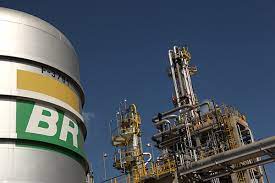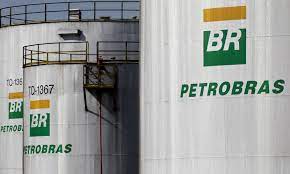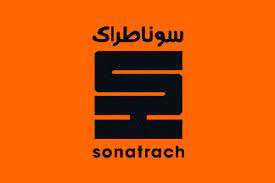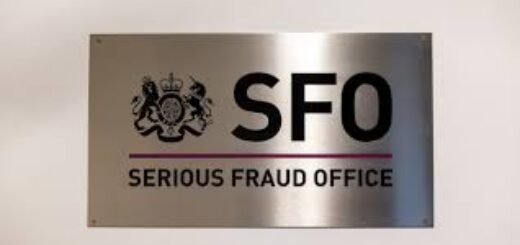Digging into Honeywell UOP’s Bribery Schemes in Brazil and Algeria (Part II of III)

The facts surrounding Honeywell’s bribery schemes in Brazil and Algeria are fairly straightforward. In Brazil, the facts underscore the significant risks of bribery when companies participate in large, valuable project competitions. Global companies face significant risks when competing and seek every advantage to win a project competition.
Brazil
In 2008 and 2009, Petrobras developed the Premium Refinery project to design and construct two grassroots refineries to process heavy oil in Maranhão and Cerá, Brazil. The project had three bidding phases: technical ranking, design competition and commercial valuation. Honeywell was interested in the project as an important foothold in the Brazil oil industry.
In July 2009, Petrobras invited Honeywell UOP and a number of competitors to participate in the first phase. The companies submitted technical proposals for the project. UOP and two other companies received the highest technical scores and all three companies were permitted to participate in the second phase.
In April 2010, Honeywell searched for a sales intermediary to assist in the Premium project bid. Honeywell executives believed they needed higher-level contacts at Petrobras to win the contract. Honeywell’s account manager recommended a Brazil agent because the agent stated he had access to Petrobras’s downstream director responsible for the Premium project.

Honeywell officials submitted an internal request for approval to retain the agent and specifically represented that the agent would receive a 3 percent commission (or $12 million) if successful. The request falsely represented that the Honeywell officials knew the agent for two years and omitted the fact the agent would interact with Petrobras officials.
In May and August 2010, the agent and Honeywell’s Petrobras account manager met with a Brazilian lobbyist with close ties to Petrobras’s downstream director. Honeywell’s account manager offered the Brazilian lobbyist and Petrobras’s downstream director a portion of the sales commission (3 percent) in exchange for helping Honeywell win the Premium contract.
In a subsequent meeting, Honeywell’s account manager met with the Petrobras downstream director and the lobbyist at a shopping mall in Rio de Janeiro and they agreed that the Petrobras director would assist Honeywell win the contract in exchange for a percentage of the commission.

Honeywell secured the lead in the design context and the bidders prepared to submit their commercial proposals. Honeywell’s account manager updated his supervisors on meetings he conducted with the Petrobras director, the lobbyist and the sales agent in which he and the agent sought information on what to bid to win the commercial phase. The Honeywell account manager and his supervisors referred to Petrobras’s director as the “King” and the lobbyist as the “King’s assistant.”
Honeywell submitted a commercial bid of $425 million. A Petrobras lower level official rejected the bid as too high. Honeywell sought to get the “King” to intervene and get the “decisions up to his level in order to control.” Inb August 2010 Honeywell’s regional director pressured his supervisors to execute the sales agent agreement stating, “I want to get this back to [the sales agent] as soon as possible, because we are pushing the king to step up and intercede.” That same day, Honeywell submitted a revised commercial bid of $348 million to Petrobras based on specific guidance provided by the Petrobras director. Petrobras accepted the bid and Honeywell won the contract.
Honeywell paid the sales agent a total of $10.4 million in commissions from a U.S. bank account. The payments were made without receipt of an invoice from the sale agent. The payment requests lacked basic relevant information. Later, the sales agent wanted his commission payments routed to a Swiss bank account in a different name associated with the sales agent’s new company.
Algeria

In November 2004, Honeywell Belgium contracted with Sonatrach, Algeria’s state-owned oil company to modernize the instrumentation and control systems at a refinery in Oran, Algeria. In 2008, Honeywell renegotiated the contract. One year later, Honeywell and Sonatrach had a dispute concerning the contract and all work ceased on the project. Sonatrach believed that Honeywell Belgium should pay liquidated damages for the delay. Sonatrach’s downstream director was a key decision maker in the resolution of the dispute.
Starting in 2010, Honeywell Belgium retained a Monaco sales agent, who was subjected to due diligence review and approved. Honeywell used the sales agent to help resolve the liquidated damages dispute. Honeywell then used the sales agent to pass through various payments to a group of people who helped Honeywell secure a contract with Sonatrach. The Monaco sales agent understood this to mean the payment as possibly a bribe.
Later, in 2011, a Honeywell sales manager engaged a consultant to help resolve the problems Honeywell was having with Sonatrach. The consultant made two separate payments to the Sonatrach official, $50,000 and $25,000, respectively, from a Swiss bank account.
Sonatrach and Honeywell Belgium continued to disagree about the contract in Algeria. Sonatrach threatened to transfer the contract to another company. After making the first $50,000 payment to the Sonatrach official, Honeywell and Sonatrach agreed to modify the contract and resolve their dispute.
Two weeks later, the Monaco sales agent and a Honeywell subsidiary entered into a fictitious sales consultancy agreement where the agent would purportedly promote sales in Algeria for a 2 to 4.5 percent commission (capped at $500,000 per year). Despite not achieving any of the contractual milestones, the Monaco sales agent was paid $300,000.
The Monaco sales agent was paid to reimburse the consultant who made the two bribery payments to the Sonatrach director. The Monaco sales agent sent an invoice to Honeywell for a lump sum fee of $300,000 relating to the refinery project. Honeywell approved the invoice payment. The sales agent, in turn, repaid the consultant the $75,000 through a series of intermediary transfers involving multiple U.S. correspondent banks located in New York.















